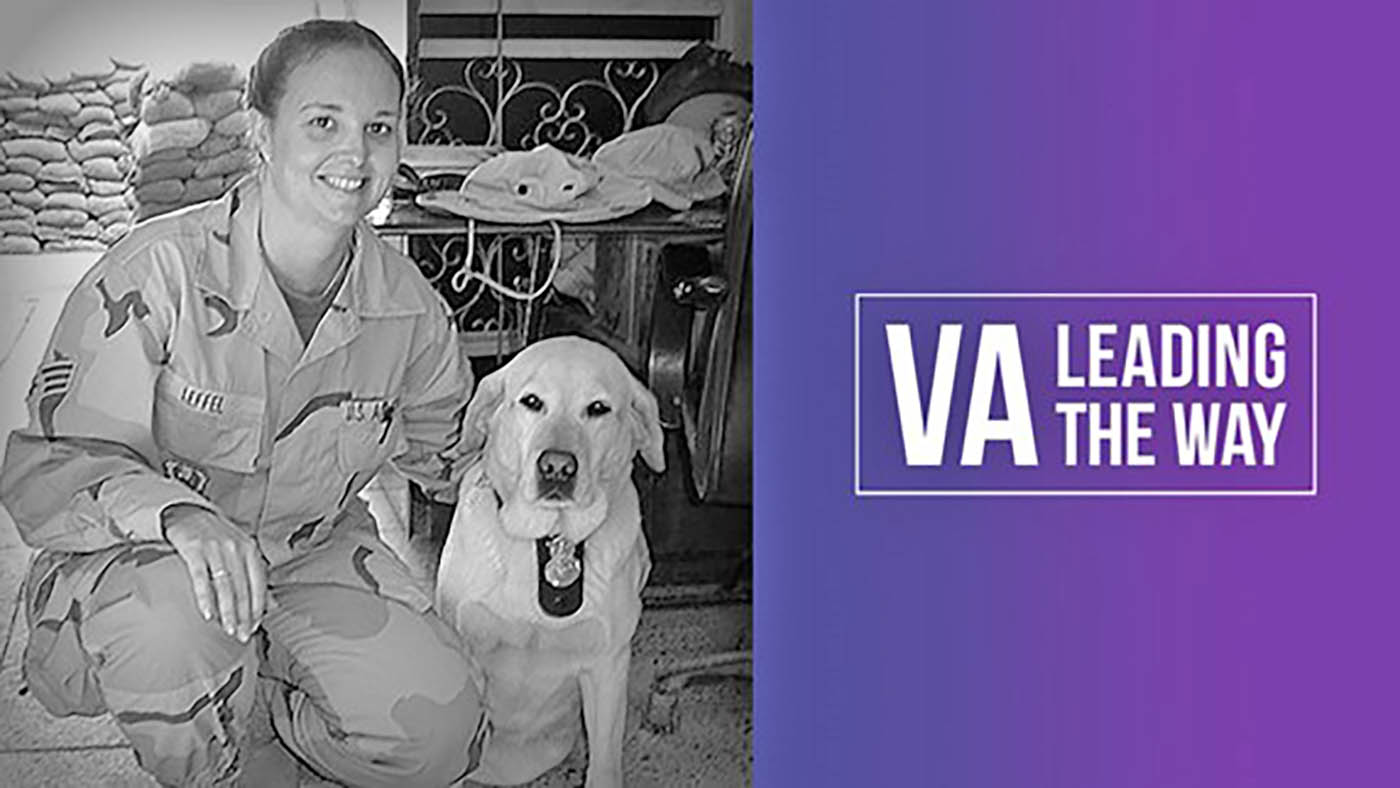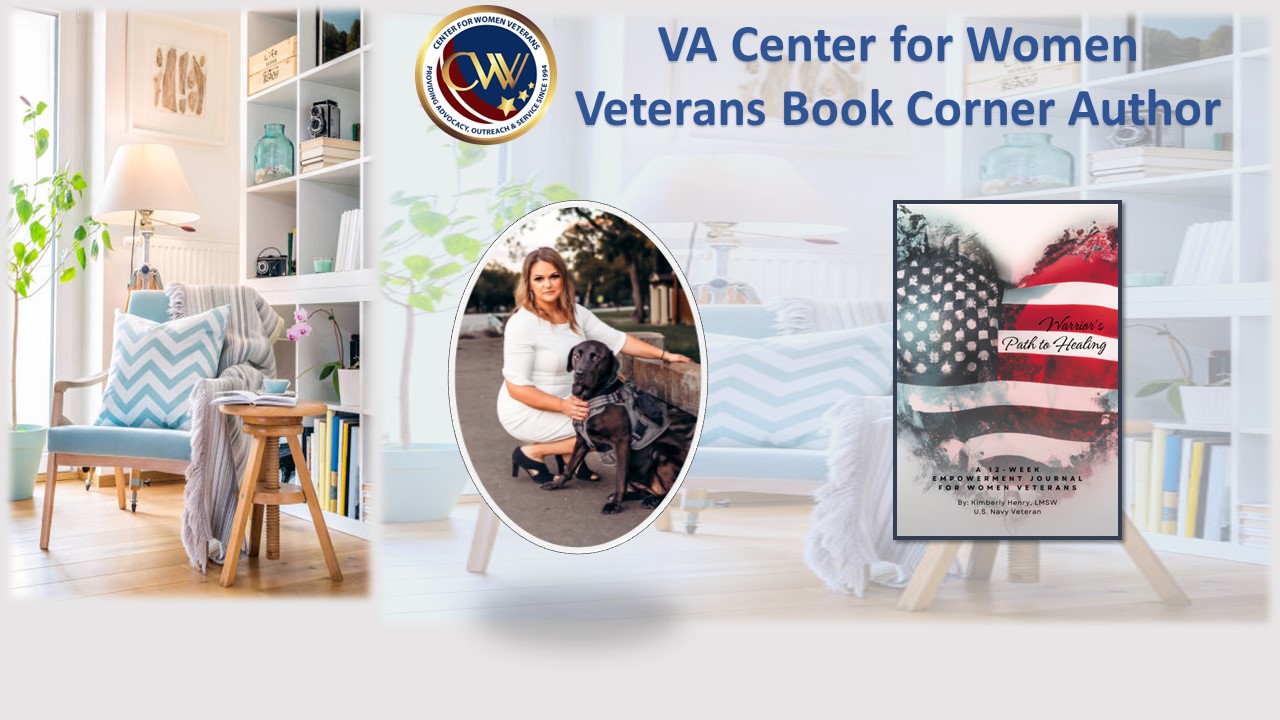Women Veterans are the fastest growing group using VA services, and VA is expanding care to better serve their needs, from primary care to specialized care, including mental health, chronic conditions and reproductive health.
While women have served in the military since the American Revolution, around 75% of active-duty service members are men. But as more women serve across all military branches and divisions, VA is evolving its care to meet women’s needs.
Retired Air Force Captain Lyndsey Leffel has chosen VA health care for over 20 years. “When I first went to VA in 1998, I was seeking help for PTSD after deployment. I didn’t know where else to go and VA helped me.”
No longer just a man’s world
When Leffel began using VA services, she was frequently mistaken for a military spouse or caregiver. “It was a man’s world. I walked into VA and people kept asking where my grandpa was,” she recalled.
From hunting magazines in the waiting rooms to oversized hospital gowns, almost everything in VA medical centers seemed geared toward men.
In the late 1990s to early 2000s, Leffel began to notice new specialty clinics centered on women’s reproductive health, military sexual trauma and mental health. Today, as more women than ever before transition from military service to civilian life, VA is evolving to provide women Veterans the care they need.
When Leffel enters VA today, she is thanked for her service, not asked whose spouse or caregiver she is. She also notes the more diverse selection of reading material in waiting rooms. “Those things might seem small, but they make a big difference,” she said.
Encouraging women to use VA care
Leffel is both a VA patient and a provider. She is currently deployed to Chicago, serving as the National Electronic Health Record Modernization Supplemental Staffing Unit Inpatient nurse manager, supporting the implementation of the Cerner electronic health record.
“I feel I provide an extra service to Veterans who come to the emergency department. Some Veterans don’t understand the programs that may be available to them, like transportation to medical appointments or recreation therapy programs. I’m one of those very pro-VA care people, so I can share with Veterans everything I know,” she said.
Leffel uses her own positive experience with VA care to encourage other women, like her Navy Veteran mom, to use VA benefits. “Give it a chance. VA has always been there for me. When I get sent out to the community, I feel like a number, a dollar sign. At VA, I don’t,” she said.
VA women’s health over the years
Women have been receiving care at VA since the World War Veterans Act of 1924, which ensured that VA care was extended to more women in more places. Veterans Bureau hospitals and campuses have been accepting women Veteran patients ever since.
Today, every VA has a Women Veteran Program Manager to advise women Veterans and help coordinate the services they may need. Every eligible woman Veteran has access to the VA health system, which provides care at 1,293 health care facilities, including 171 VA medical centers and 1,112 outpatient sites of care.
“Women Veterans belong at VA and we are committed to honoring their service with the gender specific care they have earned and deserve. No matter where they are located, VA is here to serve women Veterans and all Veterans as well as they have served us,” said VA Under Secretary for Health Dr. Shereef Elnahal.
Women’s health resources
Find more information on women’s care at VA.
Listen to “She Wears the Boots,” a VA-sponsored podcast highlighting how VA is a women’s partner in health care.
Topics in this story
Link Disclaimer
This page includes links to other websites outside our control and jurisdiction. VA is not responsible for the privacy practices or the content of non-VA Web sites. We encourage you to review the privacy policy or terms and conditions of those sites to fully understand what information is collected and how it is used.
More Stories
Bob Jesse Award celebrates the achievements of a VA employee and a team or department that exemplifies innovative practices within VA.
This month's Center for Women Veterans Book Corner author is Navy Veteran Kimberly Henry, who served as a Cryptologic Technician and Sexual Assault Victim Advocate from 2009-2019. She created "Warrior's Path to Healing: A 12-Week Empowerment Journal for Women Veterans."
The Medical Foster Home program offers Veterans an alternative to nursing homes.







Oklahoma City VA is not female friendly either. Advertised programs are only for men but they hide it. And it is true they make you crazy about getting a pap done and ignore the diagnosis you have of MST. And we are sitting waiting as well, I am 5 weeks out from an echo. Guess heart problems aren’t as important to them as the pap. It would be nice if they hired people that did patient care and not just VA care. So where are the north Texas women suppose to go for care. We aren’t invisible anymore, and the days of silencing us are gone. Maybe 60 minutes or dateline because that is failure to provide care.
Just when we, women Veterans, feel as if we’re moving forward and making strides in the male dominated VA system, VA North Texas gets rid of their all female women’s clinics? Male Veterans are now being added to these clinics. Is this happening VA wide or just Texas? A major reason some women Veterans began their care at the VA, was due to the fact of being offered an all female clinic, where both gender specific and routine care was offered. These gender specific clinics helped many women Veterans gain the confidence, especially those suffering with PTSD, to seek medical and mental health care. It’s unfortunate, for the female Veteran, that VA executives of North Texas don’t see the confidence boosters these gender specific clinics offered.
I to chose the VA. In early 1969 I had a total breakdown, now referred to as PTSD. They didn’t have a name for it. They helped me with in patient help for several months. I would go to daily group sessions and following that I was one on one with a therapist. It was a relief to find other veteran’s, experiencing the same symptoms and problems that I could also relate too. Thank God ,the VA came through even though they didn’t know exactly what was causing these things and how to treat them. “Treat the symptom’s is all they could do. I remember my Doctor to this day, Dr. Sacks, he has long since pasted but he did his very best with what he had. God rest his soul.
I have not found VA doctors to be knowledgeable about a difference in women’s care especially in the area of dosing of medication or thinking about the effect of having large men’s hand down in my private care. Have VA care only because I can’t afford anything else.
That is awesome and proud of her and her efforts. I kinda agree on the fact of not fitting in as I’m not WWII/korean/vietnam age but I’m not one of these young kids either. So I feel in limbo. Either way congrats girl.
I am a woman veteran and currently I am being told by my local VA center that in order to receive paid health care for chronic sinusitis that I must go to the local VA facility here in Columbus Ohio where the allergist due to not monitoring me while on a prescribed medication by her I had to take steroids to get weaned off of the medication. When my concerns and request was sent to the head of the VA his response was that I am denied paid care by any other office than the VA. I also informed them if my fear got my life to which they responded “still denied” other than VA care
Maybe the staff at VA needs to start listening to veterans, especially Women veterans, when you keep saying I don’t have time, I’m running out of time, it means that you feel like death, that’s not the time to not listen to a veteran. When veterans have to go years and years, with bad infections, because it’s easier for staff to ignore veterans or shut them up, we have a problem. Telling everyone how great the VA is doing, or how they are so Woman friendly makes me want to cry….
Of course it was a man’s world when she first utilized the VA twenty years ago. Ow it sadly seems the VA is a woman’s and gay VA. The regular human Veterans are now sitting g too often in the back of the VA bus.
Of course the VA had to make adjustments to women , but it never should have been at the expense of other Veterans.
The VA has forgotten what the word Veteran means.
There should be no difference at all in how Veterans are treated. No difference in sex sexual orientation or race and nationality. Veteran is one word. Use it.